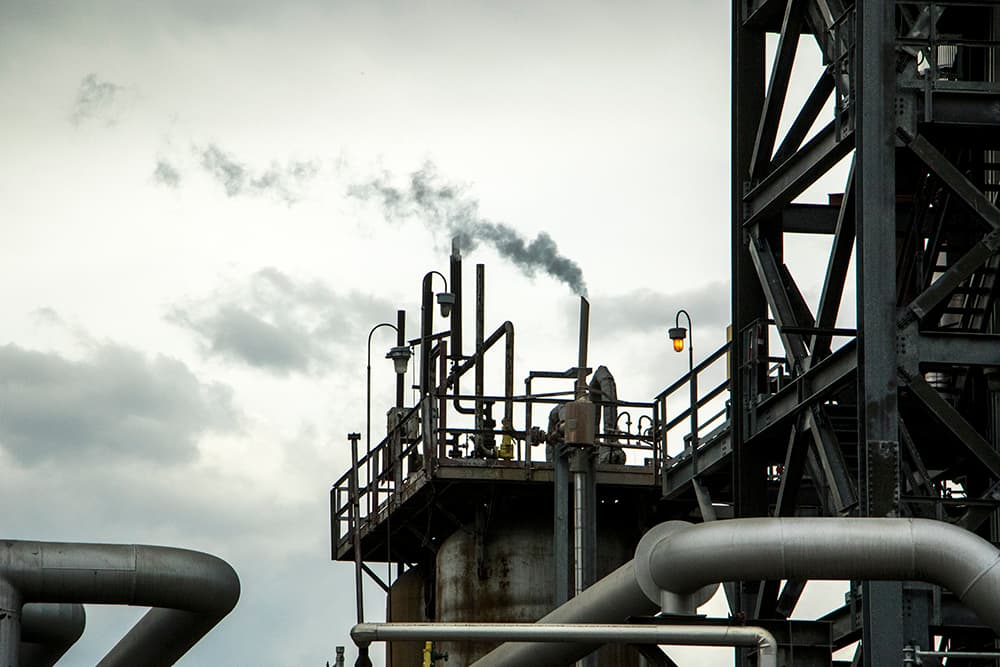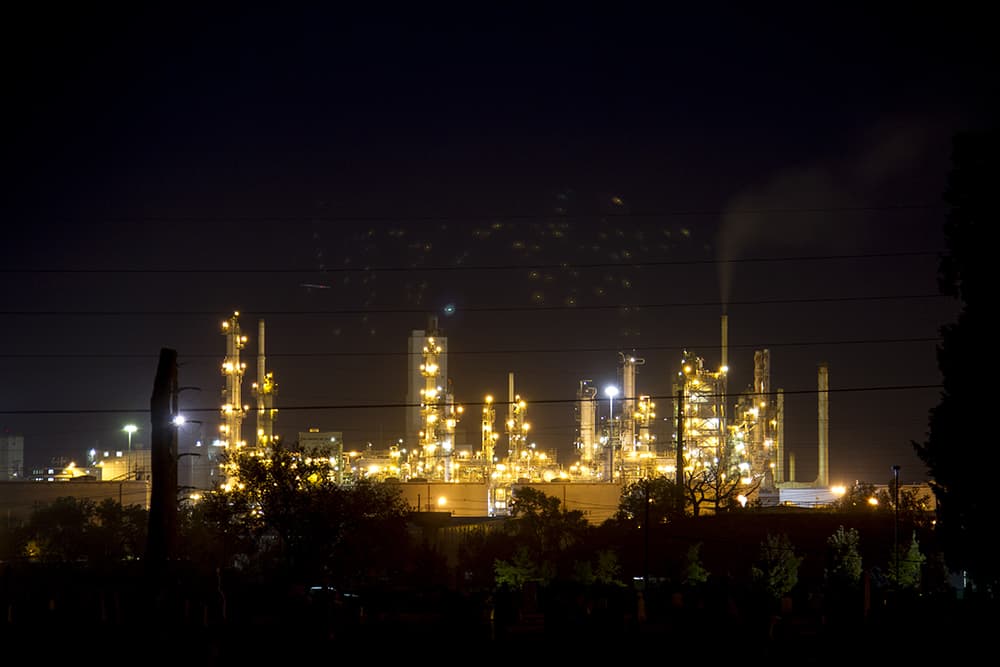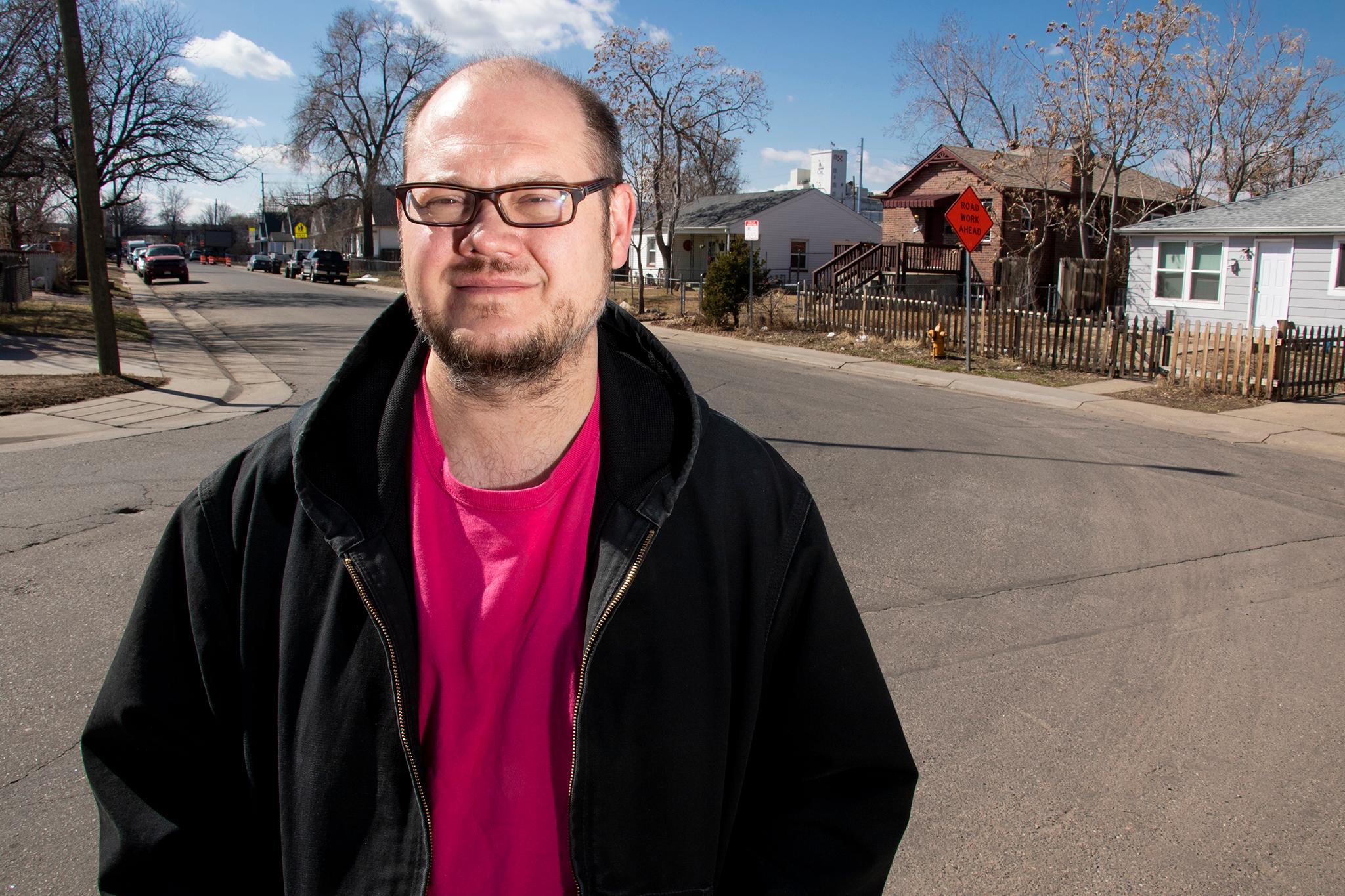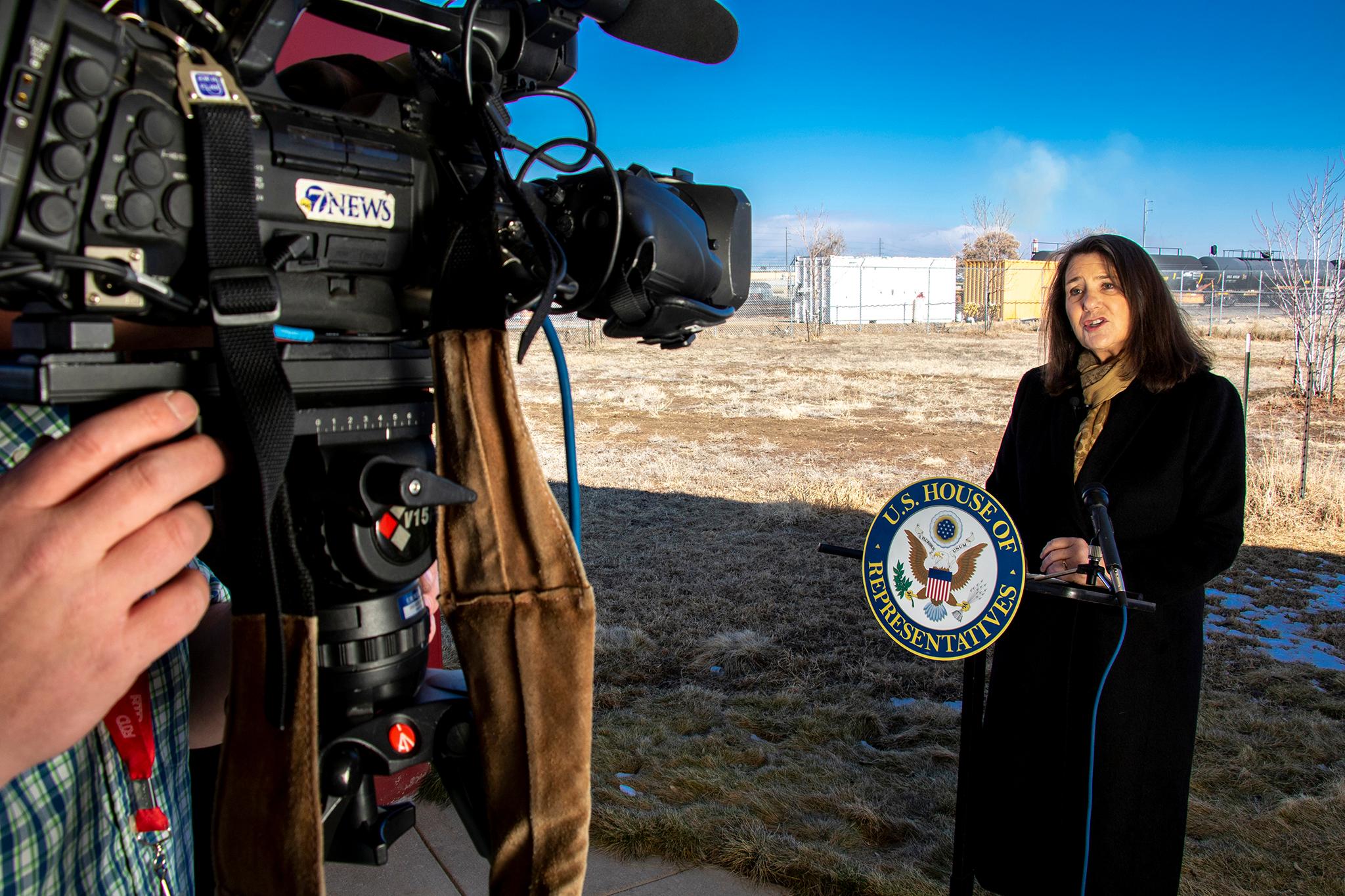On Tuesday morning, U.S. Rep. Diana DeGette announced she will introduce legislation requiring the Environmental Protection Agency to put a formal cap on how much hydrogen cyanide can be released from industrial facilities across the country.
She made the announcement from Focus Points, the community center in Elyria-Swansea that's almost in view of the Suncor tar sands refinery in Commerce City.
Companies like Suncor, she told a small group of reporters and residents, are allowed to set their own maximum outputs for that chemical because of a "loophole" in EPA regulation.
"To me, that's ludicrous," she said. "It's kind of unbelievable that we don't have a limit, that we're just relying on these companies to tell us what they're putting out there."
DeGette said this just came to her attention recently, and she's using her new power as chair of Energy and Commerce's Oversight and Investigations subcommittee to introduce a fix. Her legislation would require the EPA to use existing scientific work on hydrogen cyanide to come up with a "reasonable" maximum, which would cause companies like Suncor to "immediately limit their emissions."
But Suncor is just one of many pollution sources around north Denver neighborhoods that have higher rates of chronic illness like asthma and heart disease, and cracking down on one unregulated compound might not make a huge difference for those residents.

Regulation or not, Suncor releases a lot of chemicals into the air
Last year, the Denver Post reported that the refinery emits 8.5 tons of hydrogen cyanide each year. According to the CDC, the invisible gas can cause anything from skin irritation to cardiac arrest, comas, temporary blindness and can "easily" form explosive mixtures when it mixes with air.
Suncor already must comply with maximum outputs on a slew of other chemicals that are regulated by federal standards, but it doesn't always work out that way. In 2016, a power failure caused a refining process to shut down prematurely and resulted in a huge plume of smoke and hydrogen sulfide that could be seen across the city. Just a few weeks ago, the facility dealt with a "hazmat incident" after a gas line broke.
In 2019 alone, according to documents filed by Suncor with the Colorado Department of Public Health and Environment, the company has "deviated" from 47 permits, regulations or standards over the course of 20 incidents. Eleven of those incidents were listed as planned, but the remainder - a total of 26 deviations - were listed as "under investigation."
Deviations include releasing too much hydrogen sulfide or sulfur dioxide or burning visible flares out of the top of exhaust ports.
Garry Kaufman, director of CDPHE's Air Pollution Control Division, said any "deviation" is technically a violation, though permits might allow for them to happen without paying a fine or settlement under certain conditions like accidents and when refining machines are scheduled to start up.
Now, it might seem pointless to have permits and regulations if companies can just exceed their limits. But Josh Kratka, a senior attorney with the National Environmental Law Center, told Denverite that America's permitting system is an "essential" first step in regulating emissions.
"At least you know," he said, although these kinds of regulations can become pointless if there's no pathway to enforcement.

The good news, he continued, is that the Clean Air Act is "extremely powerful" in that it allows the government to act when companies exceed permit maximums and, more crucially, includes provisions for citizens to sue companies in the event that the government drops the ball.
DeGette's bill would inject hydrogen cyanide limits into the Clean Air Act, so citizens would have the power to sue if companies broke whatever the new federal limits might be.
That raises another problem, however, since the EPA has been less active under President Donald Trump's administration.
"I frankly wouldn't trust this EPA to come up with a really strong and protective limit," Kratka said, although he added that President Barack Obama's EPA wasn't the strictest either.
DeGette told Denverite that she's already held hearings on how effective Trump's EPA has been.
"This bill will force the EPA to do what it should have done on its own a long time ago," she said.
Though she has not spoken to anyone at the agency about this bill yet, she said she will and hopes they'll support it.
Even with regulation, there are still questions on whether they may protect nearby residents
Robin Reichhardt is a community organizer with the Globeville Elyria-Swansea Coalition, a group that advocates for community equity in those north Denver neighborhoods. His house sits in the city's most northern reaches, very close to Suncor, and he remembers very well when the facility belched smoke in 2016. He was outside and saw it happen. Then, he said, he lost his sense of taste and smell for two years. It freaked him out.
But besides that one incident, the refinery is an everyday concern.
"The smell and health effects are present every day," he said. "Everyone that lives nearby has chronic cough."
While he's glad DeGette is paying attention to hydrogen cyanide, he said the refinery's output at large is a problem that he doubts will ever be addressed.
"I'm grateful that someone would close a loophole," he said, "but it's also election season."

Across the country, Kratka said, there's "absolutely" a disconnect between pollution regulations and community health. He pointed to Houston, Texas, in particular, where concentrations of refineries are regulated but still take a toll.
"Everybody there is always sick, coughing and wheezing, and their eyes are always burning," he said. "There's definitely a gap between what's allowed and what's truly safe."
Kaufman said that individual restrictions might not address cumulative health impacts from all the pollution sources, especially in these north Denver neighborhoods. While the EPA might say a certain level of exposure to something like hydrogen cyanide is safe, their limit treats the chemical as if someone was interacting with it in a vacuum.
"It's not really addressing the broader community effects," he said. Even though there's regulation in place "that doesn't mean people aren't feeling impacts."
Reichhardt emphasized that his neighbors "really do care about this," but they generally lack the ability to speak up or do anything about it because they're in "survival mode," just trying to get by and stay in place despite gentrification and an "onslaught of development."
Suncor responded to our request for comment with a statement saying, "Suncor strives for continuous improvements across our business, including reducing emissions," and that they work with local, state and federal officials "to ensure the refinery is properly permitted."
Correction: This story originally misspelled CDPHE's Air Pollution Control Division Director Garry Kaufman's last name as Coffman.













